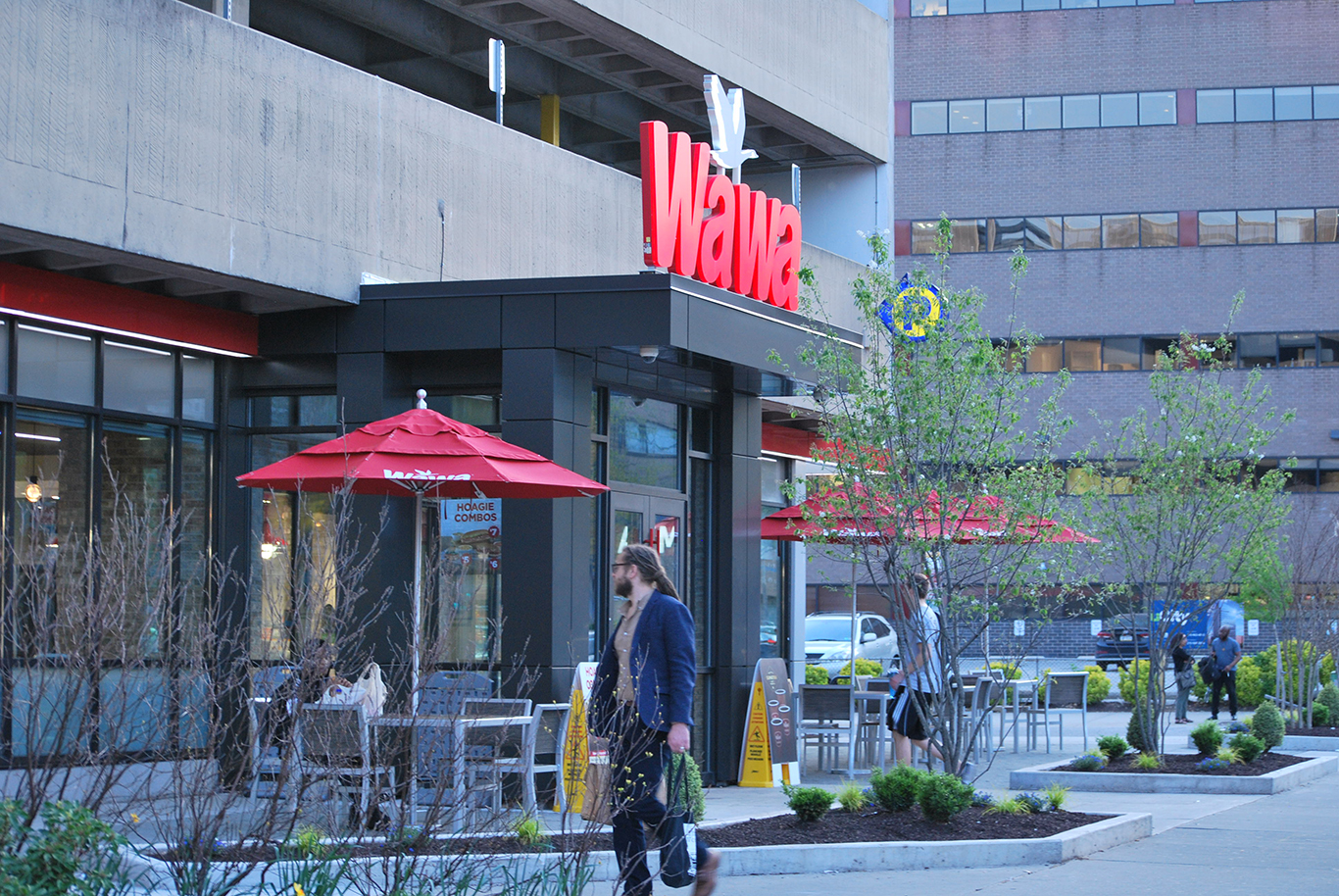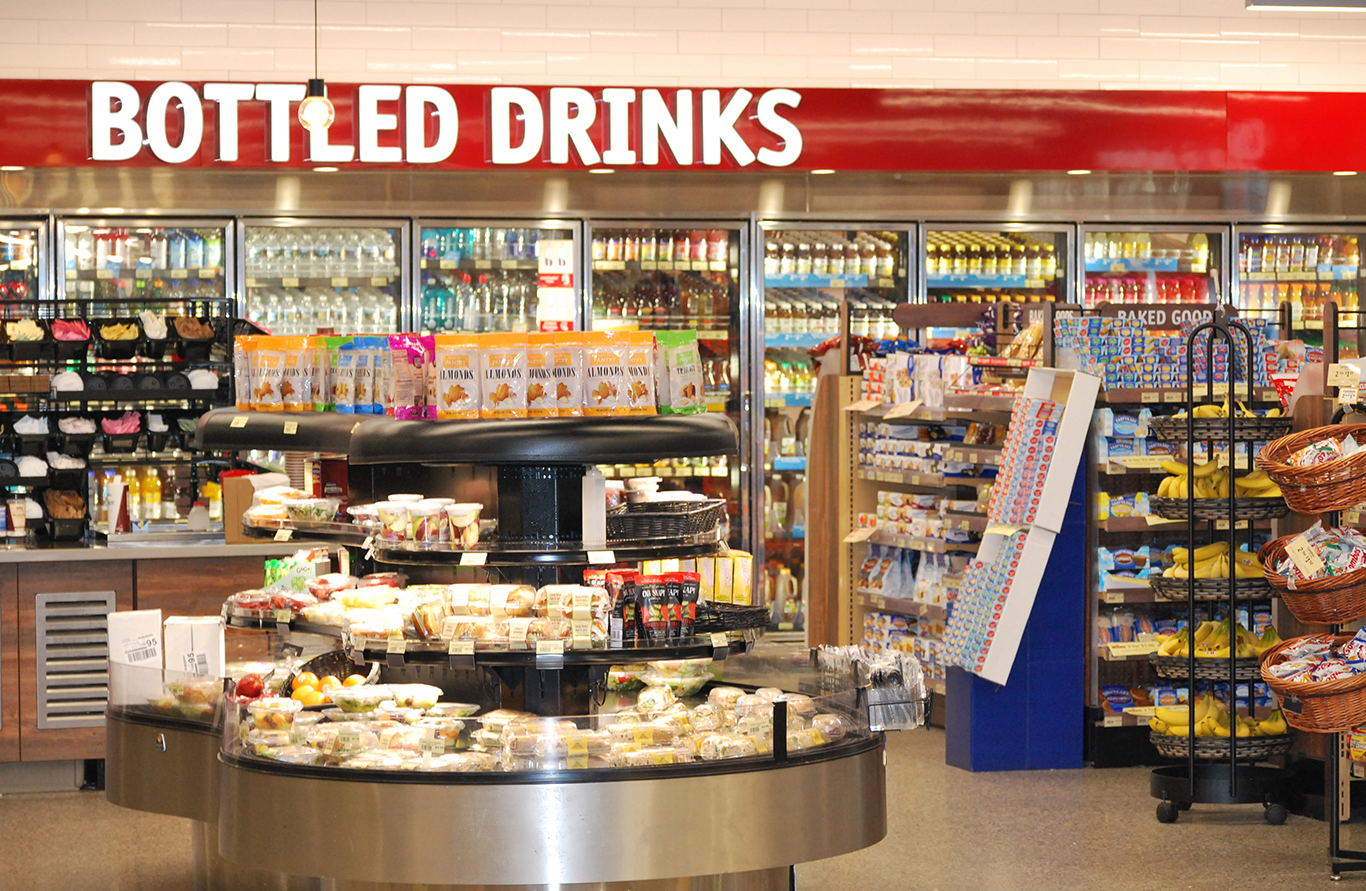
Drexel University is home to one of Philadelphia’s largest Wawa locations — the 8,760-square-foot convenience store sits on the corner of 34th and Market streets. Since its opening Sept. 21, Drexel’s Wawa location has attracted many people who live, work and go to school in the area.
“We [at Drexel Police] do get a lot of calls there,” Chief of Drexel Police Department and Vice President of Public Safety Eileen Behr said. “They aren’t always theft or crime calls, though. A lot of our calls are for disturbances like homeless people panhandling, or homeless people getting into arguments with patrons or [with one another].”
An increased presence of homeless community members has become a growing concern inside Wawa and in the surrounding areas outside the store, according to Behr.
Since Wawa’s opening in Sept., Drexel Police has answered 63 calls — most of which were made by Wawa managers and involved only minor disturbances — according to Behr’s statistics. However, a few of the calls involved more serious crimes, like theft.
“Theft is our number one crime on this campus,” Behr said. “In 2018, we had 318 thefts across campus. And oftentimes, the thefts are crimes of opportunity.”
While the theft cases at Wawa were largely isolated incidents, Drexel students can minimize the risk by being more aware of their surroundings. Behr warns against leaving valuables — like your backpack, cell phone, or wallet — alone and in plain sight. Losing something like that is devastating.
“If you lose [a valuable like] your laptop or your wallet, it’s like losing your life,” Behr said.
Behr credits Wawa’s close proximity to the Market-Frankford Line subway stop and the store’s welcoming, open-all-hours atmosphere for the increased presence of homeless community members.
There is a fine line dividing what constitutes illegal and legal panhandling, Behr said. Panhandling, or asking others for money, is a form of free speech until the person becomes aggressive or begins to inhibit another person’s free movement — at that point, it becomes a crime.
Drexel Police has also worked to assign officers to frequently patrol the area in an effort to minimize the crime situations happening in and around Wawa.

“We do a lot of checks [at Wawa], but we do a lot of checks at all of our local businesses,” Behr said. “We ask our officers to make frequent checks [at Wawa and 7-11] on their patrols. We ask them to go in and walk around. And our bicycle officers — that’s part of their primary route to go in there.”
In coordination with University City Public Safety Ambassadors, Drexel Police officers help by providing informational cards and pamphlets with information regarding shelters, locations for free meals and telephone numbers for the Suicide Hotline and Alcohol and Drug Support Line. And there are ways Wawa patrons, including Drexel students, can help panhandlers, too, Behr said.
“Our students, and Penn students, can be generous — but [giving money] is not always helping them,” Behr said. “If people want to help them, there are ways to help — there is a website where you can give a donation to the Homeless Outreach program. And if you see a homeless person, you can always call us to check on their well-being because we have these [informational cards].”
Drexel Police’s main goal is to get homeless community members help if they choose to accept it, Behr said. Officers have even given rides to shelters.
In all, there are ways Drexel students can minimize the level of crime at Wawa and at other businesses in the area, Behr said. Always being aware of your surroundings keeps you and your belongings safe. Knowing information and what to do can help those in need. All of this makes places like Wawa safer.
“The managers of the stores [like Wawa] are sensitive to the homeless people — they know what is going on,” Behr said. “What helps them is getting them to one of the [local] shelters and giving them information. The ultimate goal is to get them information and get them help.”
